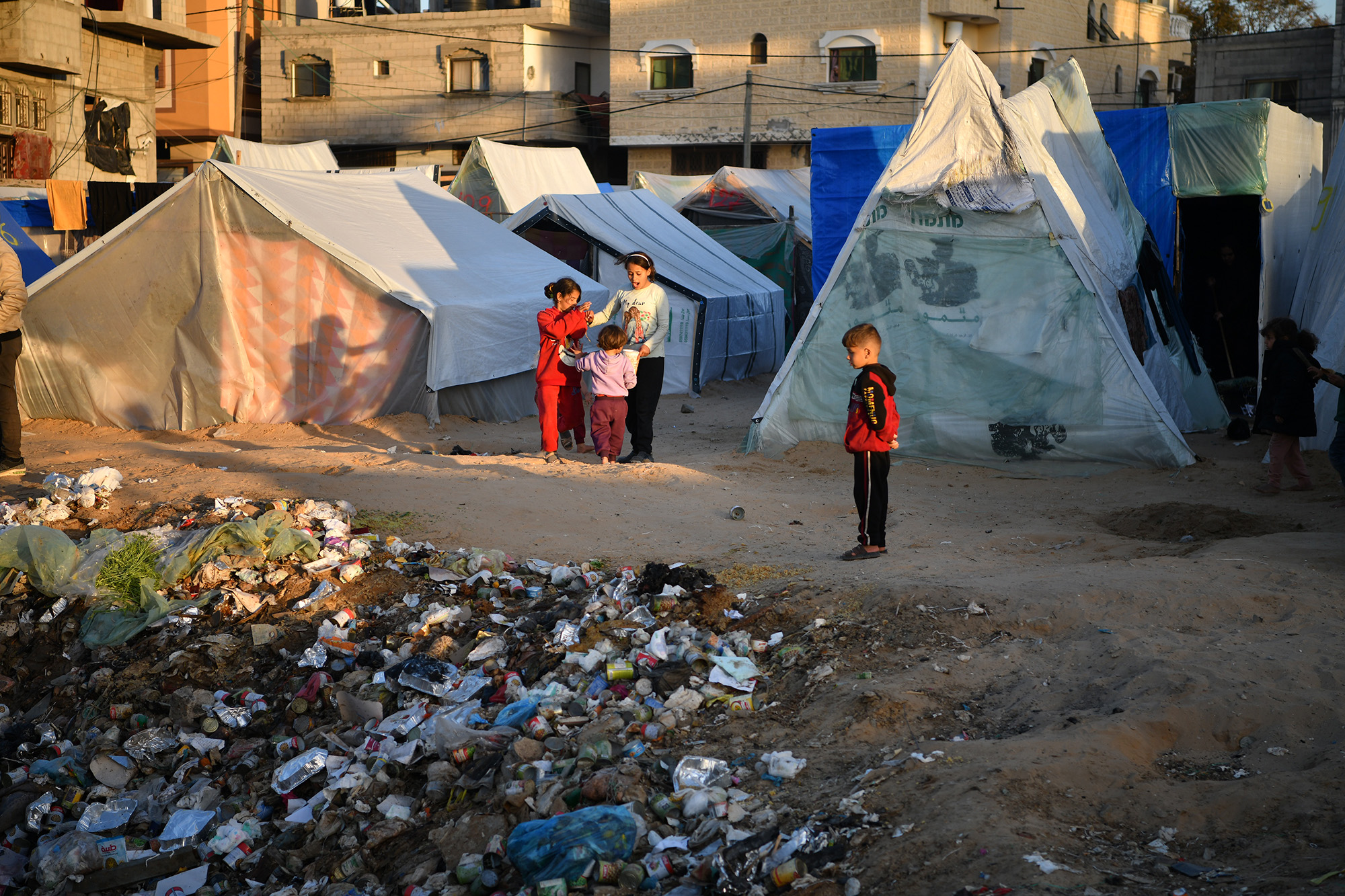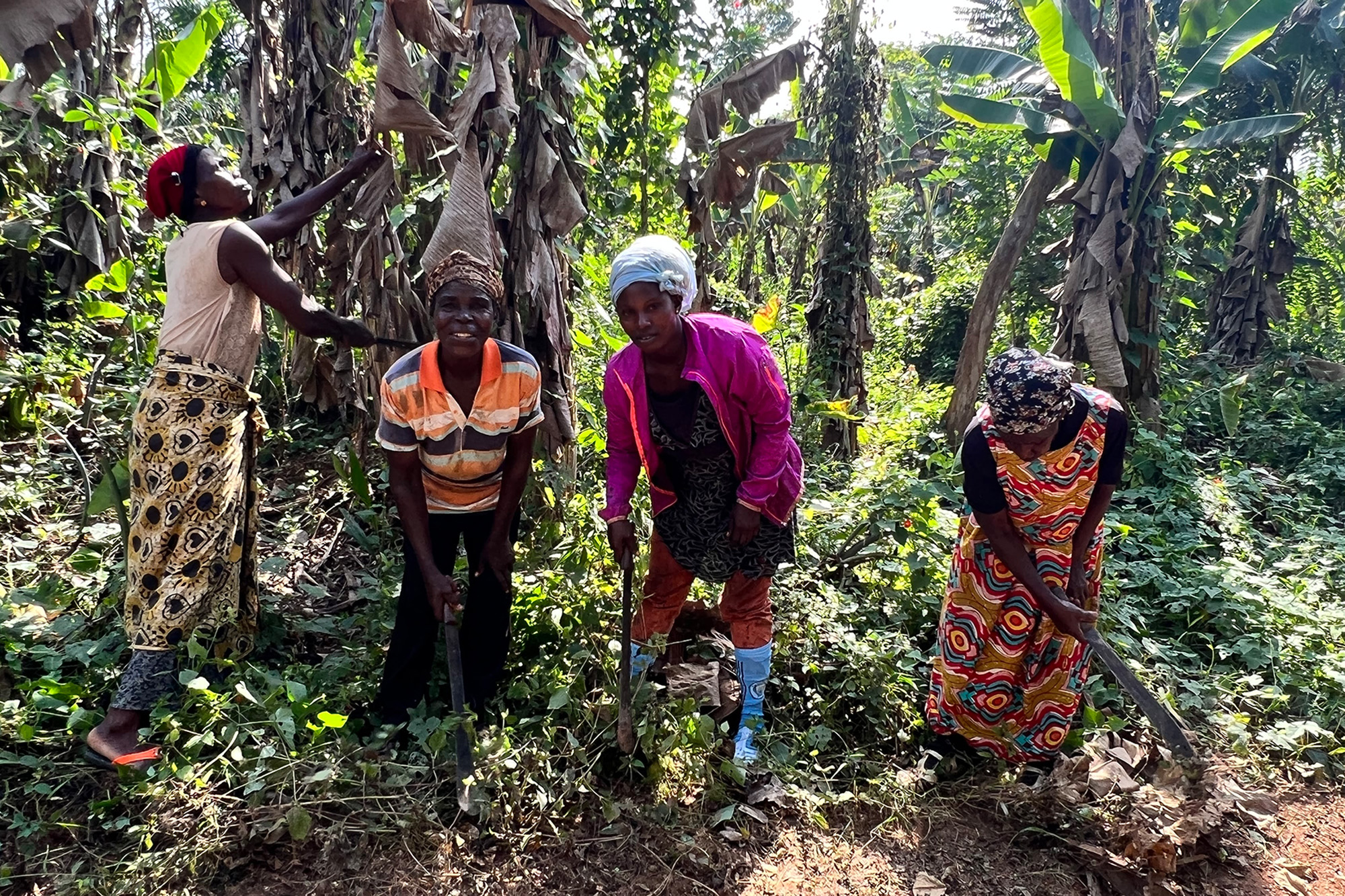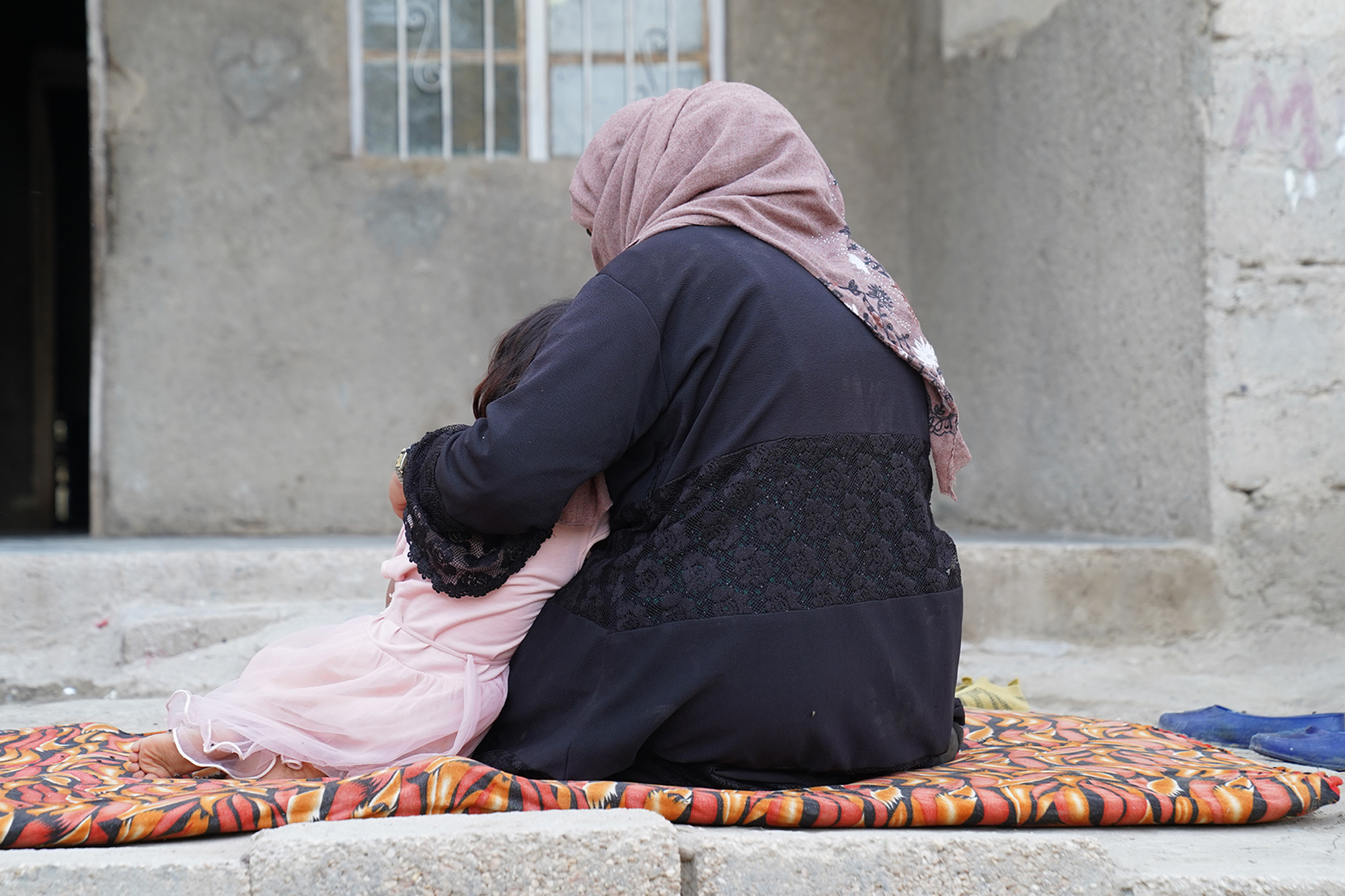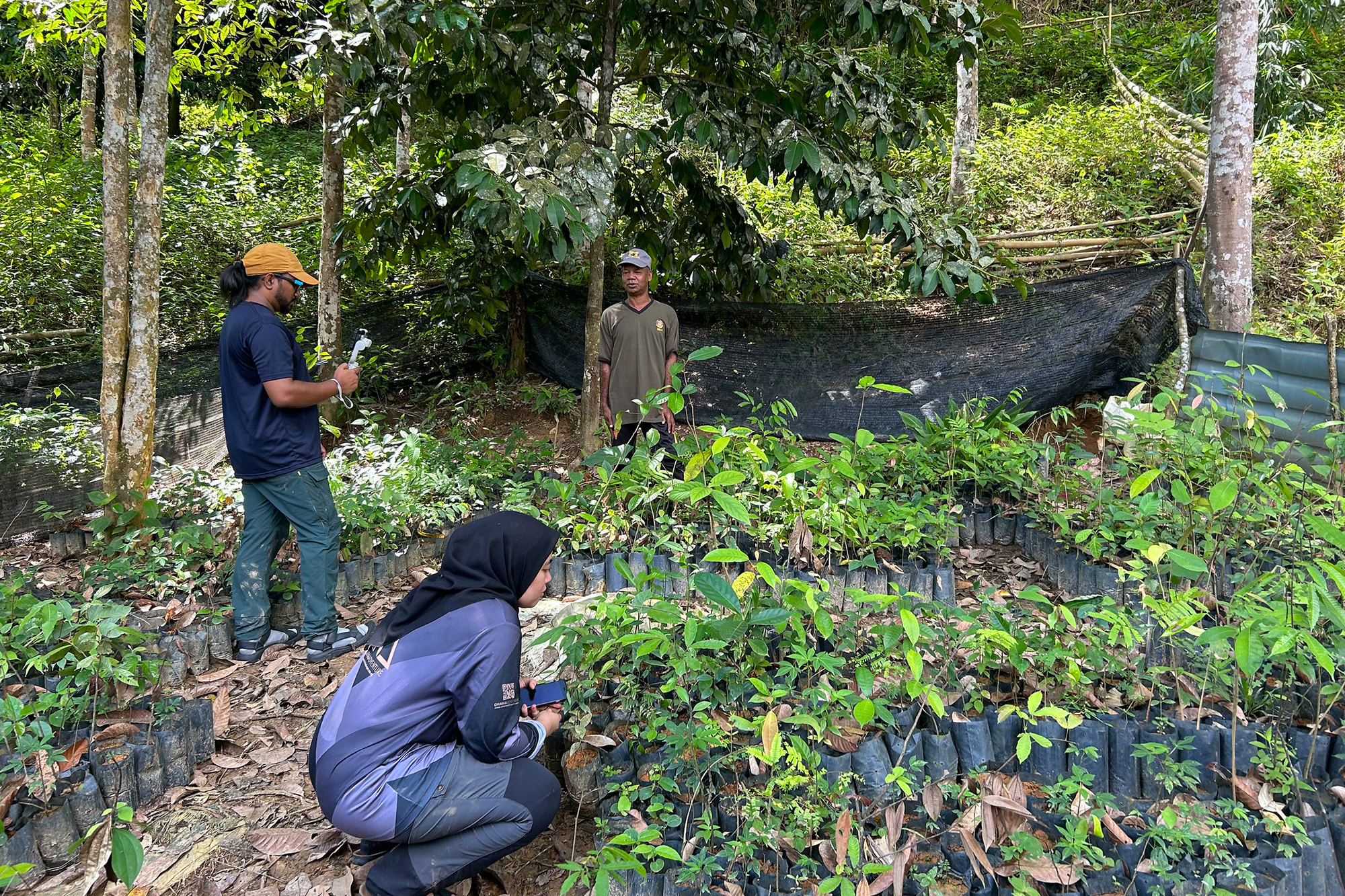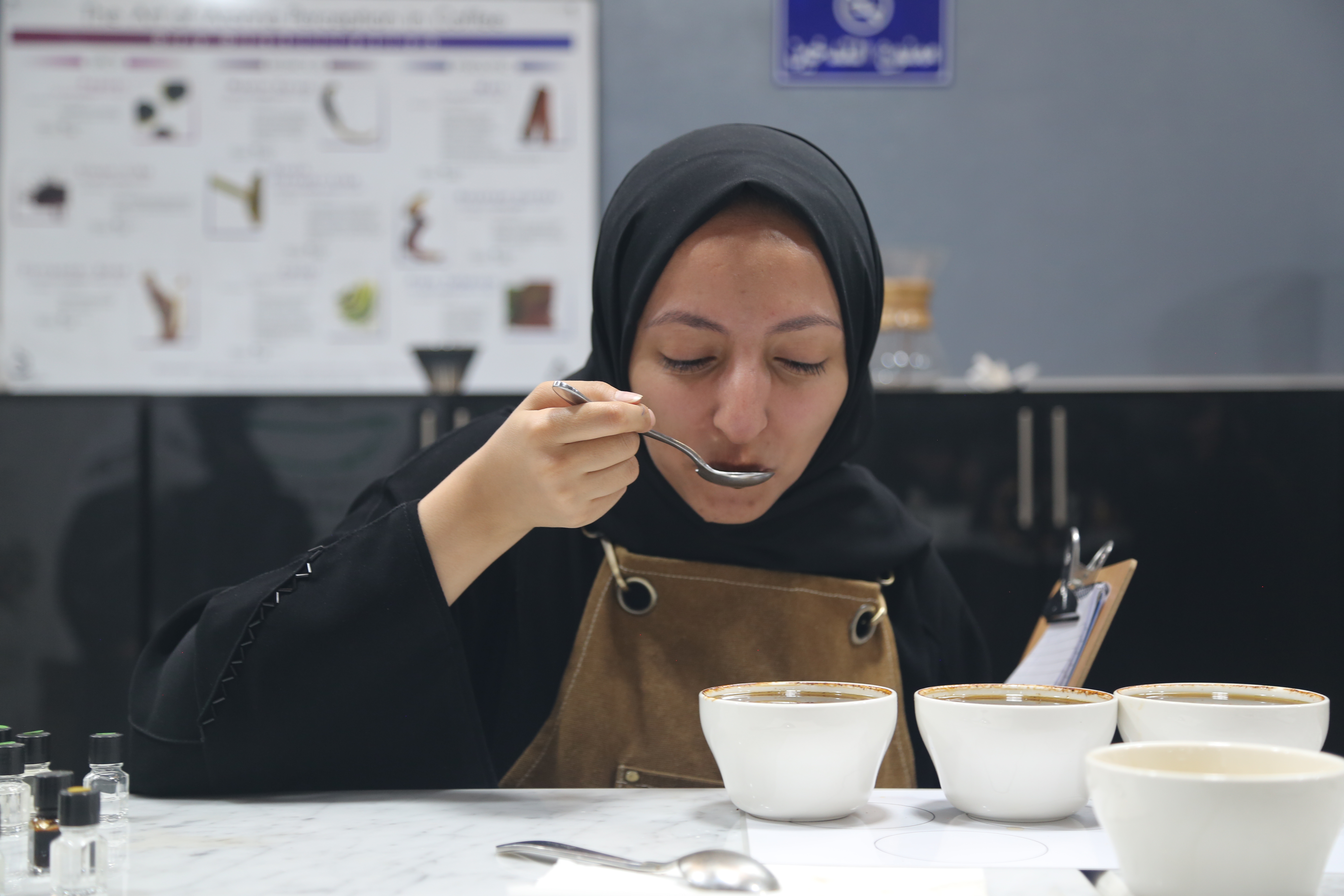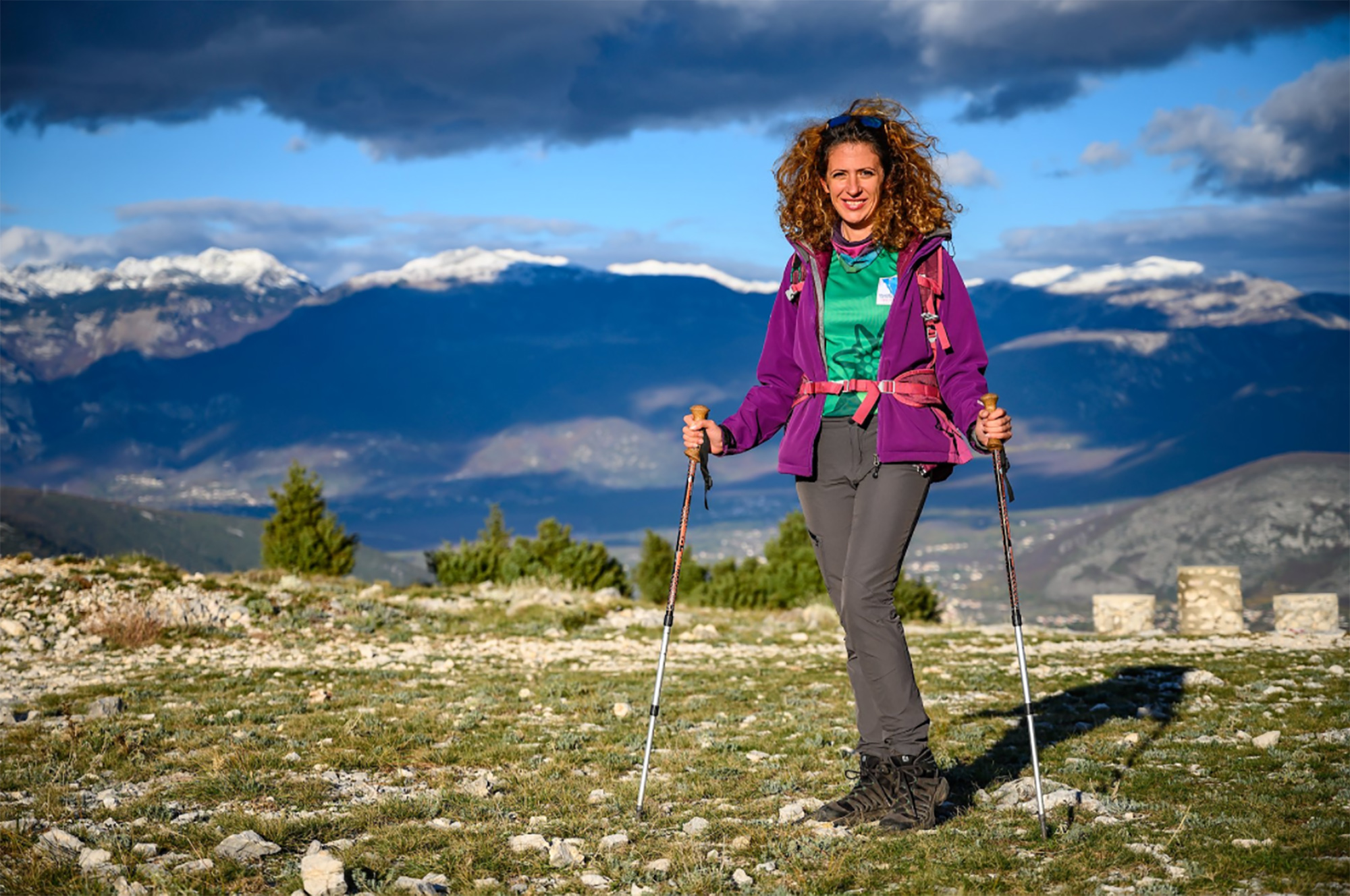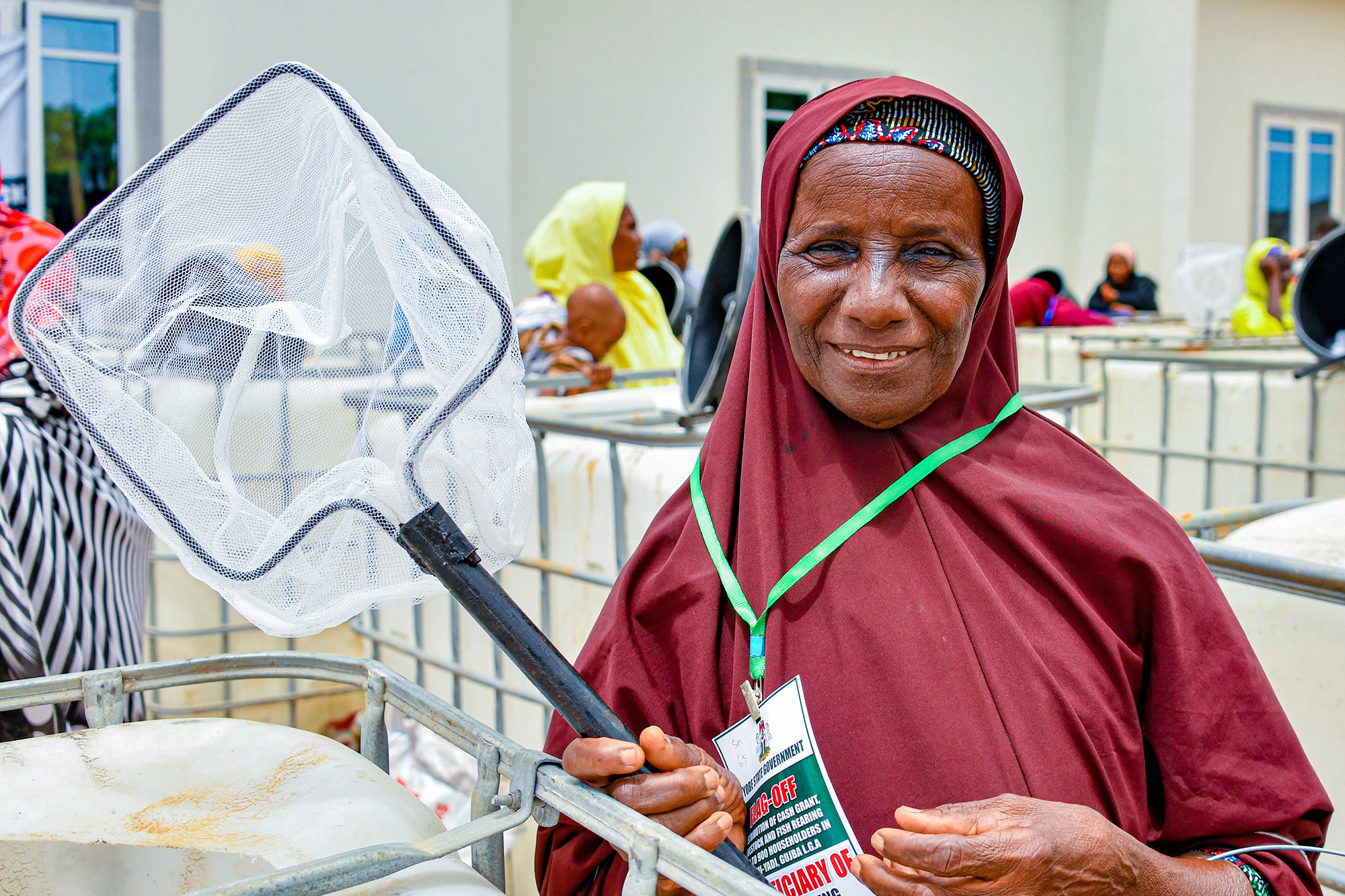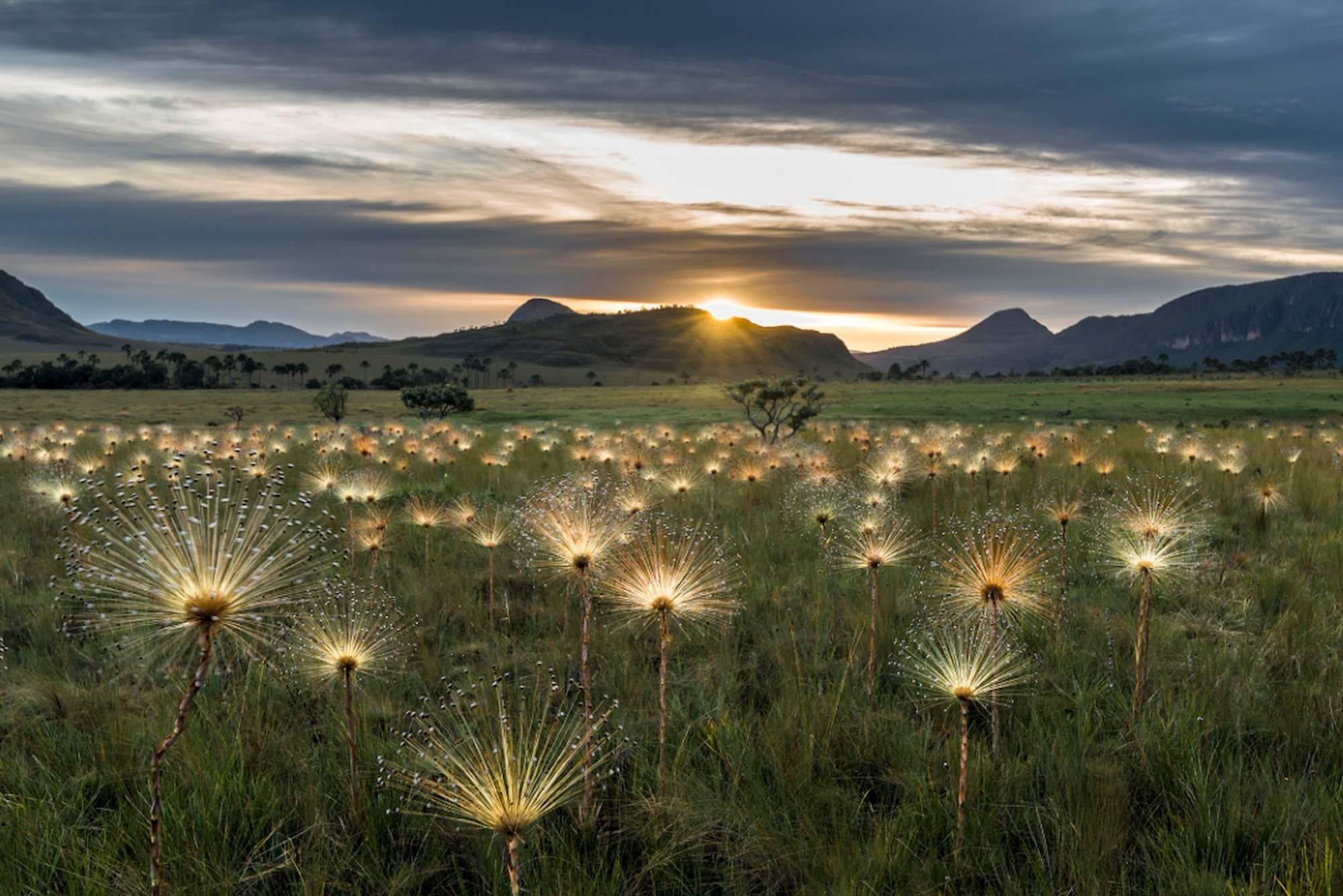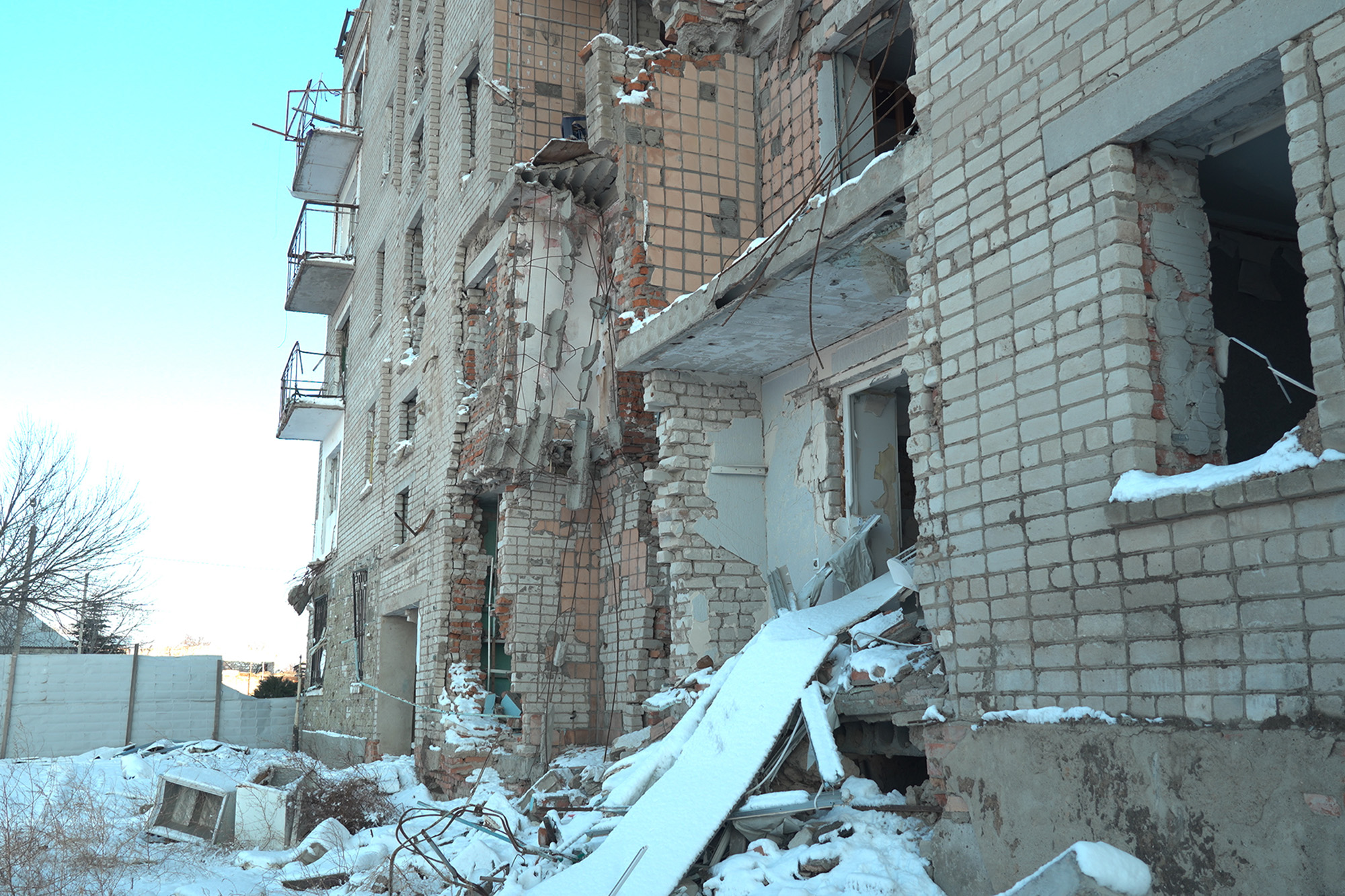The war in Gaza has led to a dire humanitarian crisis, affecting the lives of 2.2 million people. More than 1.7 million Palestinians are living in makeshift tents or temporary shelters amidst heaps of waste, aggravating a looming environmental and public health crisis. Solid waste management has become an urgent need in Gaza that requires immediate support and solutions. The United Nations Development Programme (UNDP) in collaboration with UNRWA, has launched an initiative to support solid waste management in the southern governorates of Rafah, Khan Yunis, and the Middle Area, helping to mitigate environmental hazards and address public health concerns in southern Gaza communities.
UNDP
Solange Memadji, displaced by conflict in Chad, finds solace and community in Baltram, where integration initiatives empower displaced individuals to rebuild their lives and foster unity within their host community.
The Zukpuri Community Resource Management Area in Ghana's Upper West Region is a protected area that aims to conserve biodiversity, improve local livelihoods through sustainable practices, and preserve the cultural and medicinal heritage of the region. It was created in 2021 through a partnership between the Upper West Traditional Healer’s Association, rural communities, and traditional authorities, with support from the Global Environment Facility Small Grants Programme implemented by the United Nations Development Programme (UNDP). The project aims to conserve biodiversity, improve local livelihoods through sustainable practices, and preserve the cultural and medicinal heritage of the region.
Watch the 2050 forecast delivered by Weather Kids, created in partnership with the World Meteorological Organization and The Weather Channel. The campaign is part of UNDP’s efforts to boost awareness on the impacts of climate change and to mobilize people around the world to take meaningful climate action for future generations.
It is estimated that around 60 million individuals are currently at risk of encountering mines and other explosive ordnance. Many of these individuals live in areas where conflicts have officially ended years or even decades ago, while others are in regions where wars are still ongoing. The active participation of women in addressing the challenges presented by explosive ordnance is now being recognized as a crucial factor in unlocking the sustainable development benefits of mine action. Read the testimonies of women who have cleared mines in Azerbaijan, Ukraine, and Laos PDR after receiving training conducted by the United Nations Development Programme (UNDP).
The horrific atrocities committed by the Islamic State of Iraq and the Levant (ISIL) when it invaded Syria and Iraq in 2014 shocked the world. Thousands of Iraqi women were left to bring up children alone, separated from families, and living in poverty in displacement or refugee sites. By working closely with the government, the United Nations Development Programme (UNDP) has prepared communities in Anbar, Ninewa, Salah al-Din, and Kirkuk to accept 9,000 ISIL-affiliated families back into their societies.
Trees communicate and cooperate through underground networks of fungi known as the 'wood-wide web'. Mycorrhizal connections facilitate complex ecological systems that represent the best of innovation. The IC-CFS project, an effort between the Malaysian Government and international bodies to conserve biodiversity, worked to restore contiguous forest landscapes throughout the Central Forest Spine. As part of these efforts, a forest tree nursery programme was initiated in 2022 to support the national social forestry initiative. The indigenous community in Air Banun Orang Asli Resettlement, in Malaysia, was selected as the central village to host this initiative, where the main nursery holds 10,000 seedlings of forest tree species.
Women are paid less than men in the same jobs; they do most of the unpaid household and care work and often have difficulty accessing finance and other wealth-creating resources.
Amira's coffee cupping initiative in Yemen not only preserves the nation's rich coffee heritage but also empowers women to become integral players in enhancing the industry's quality, economic growth, and global recognition.
Ana Andrić appreciates how women in Herzegovina are active in all segments of mountain development, from the organization of excursions, to mountaineering, skiing and other activities. Ana, along with hundreds of women from Herzegovina area have been hiking through the Čvrsnica and Prenj mountain ranges for more than a decade, striving to restore life in its villages and contribute to the promotion and preservation of these mountain idylls. She knows that achieving gender equality and women’s well-being in all aspects of life is more crucial than ever if we want to create prosperous economies and a healthy planet. But the trend of underrepresentation of women in the labour market in Bosnia and Herzegovina is constantly present. The ‘Sustainability of Protected Areas’ project, financed by the Global Environment Facility and implemented by UNDP in Bosnia and Herzegovina is working to protect nature and biodiversity beyond mountains.
Women are paid less than men, do most of the unpaid household and care work, and often struggle to access finance. To address this situation, governments, institutions, and development actors must commit to transformative change. This includes introducing fairer tax systems, promoting women in leadership, addressing unpaid care work, expanding employment opportunities, and dismantling policies that hold women back. UNDP's Gender Equality Seal for Public Institutions helps institutions create equal opportunities. With the Sustainable Development Goals as our guide, UNDP and partners are working to unleash women's economic power. This International Women's Day, let's invest in women and accelerate progress.
The 2023-2024 Human Development Report, "Breaking the Gridlock: Reimagining cooperation in a polarized world" presents ways forward that hinges on reimagining cooperation in ways that do not assume away divergent interests or opinions but work with them to deliver global public goods that benefit us all. This report is the first in a new trilogy of human development reports that will further explore the layers of uncertainty: how to address polarization (2023-24), shape our shared digital future to advance human development (2025), and marshal human aspirations to navigate the Anthropocene (2026).
The Cerrado savannah, situated primarily in Brazil, is the world's most diverse savannah in terms of its biodiversity. The United Nations Development Programme (UNDP) collaborates with local partners to promote livelihoods, safeguard ecosystems, preserve traditions, and bring socio-biodiversity to market shelves. The Institute for Society, Population and Nature (ISPN), in partnership with UNDP, was chosen in 1994 to manage the Small Grants Programme in Brazil, which is known as the Fund for Promotion of Productive Eco-social Landscapes. SGP Brazil has supported over 890 projects in the Cerrado, Caatinga and Amazon regions so far.
Voznesensk, a city in Mykolaiv Oblast with a population of about 40,000, was occupied by Russian invasion forces in March 2022. The town was heavily bombarded because of its strategic location, on the way to Kyiv, Odesa and other major cities. The occupation lasted only three days, but more than 700 buildings were damaged or destroyed. The United Nations Development Programme (UNDP) – together with the EU and the Governments of Sweden and Denmark – opened a Recovery and Development Office in the city in early January 2023 to coordinate international aid and support local authorities, NGOs, and businesses. In June 2023, UNDP helped set up a community security and recovery working group and is building two additional police stations to serve over 5,000 residents.
Ukraine is heavily landmine-contaminated due to war, with an area four and a half times the size of Switzerland affected. The UN has been leading the mine action programme since 2016. Clearing mines is a difficult and expensive long-term prospect, with the full demining package estimated to cost more than $37 billion. International partners, including UNDP, are helping Ukraine.

